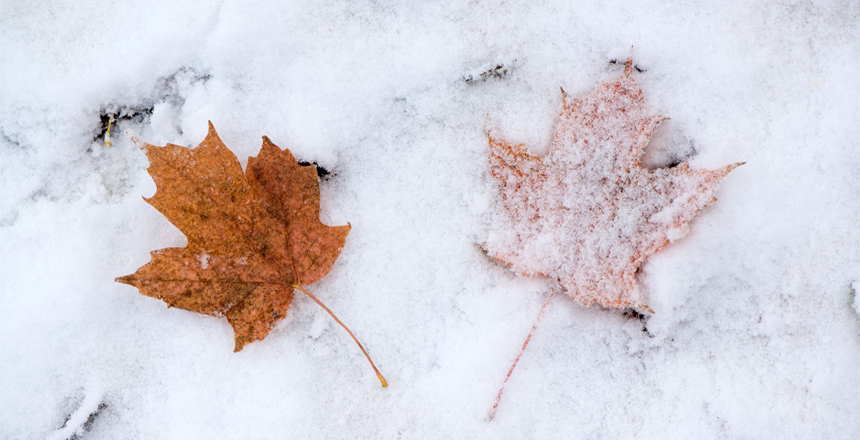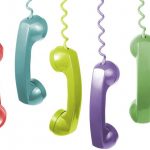My grandfather got a taste of institutional living when, in his late 80s, he was prescribed a month-long nursing home stay for intensive physical therapy. He returned to his condo with the joy of a man who’d just escaped prison. He’d never go back, he insisted, no matter how rough things got at home.
My mother was a daddy’s girl in the most literal sense. She was Roberta, named after her father, Robert. They were both handy people who did everything, whether hanging a curtain rod or building a child’s stepstool, with meticulously measured precision. They were always prepared with a bag, a box, a rubber band, or a twist tie if something needed to be organized or transported.
Mom spoke of my grandfather’s eventual decline with an almost wistful tone. “Dad, if you ever need to, you can come and live with us.” She was ready, with no hesitations, to nurse him in his final years.
My grandfather was a quiet, reliable presence in a family full of opinionated women. Then when my mom landed in the hospital at 49 with a new cancer diagnosis, he drove there every afternoon and ate a cafeteria lunch before joining her for an afternoon of silent sitting. They liked it that way.
Related
Two months later, on a Friday morning, my Dad knocked on the bedroom door. “Where’s that brochure about the port?” he asked. The day before, I’d taken her to get a portocath device implanted so she could receive chemo. She’d woken up woozy and told him to call 911. I ran outside to see her in the back of the ambulance. “You stay here,” she said, and held up her hand to indicate “stop.” She thought she was dying and didn’t want me to witness it. She came back with a diagnosis of extreme iron deficiency.
Two days later, the phone rang all morning. My aunt had called my grandfather and his voice had trailed off mid-conversation. When she called back the line was busy. She asked a friend who lived nearby to check on him, but he didn’t come to the door. They thought this must be a good thing, until she saw through the little garage window that his car was still there. Police and EMTs broke down the door and found him passed out.
He had a hard time getting around due to diminished cartilage in his hips. He’d recently received some questionable dental work. It was easier to stay in one place and eat very little. Even after this episode, he refused a visiting nurse or assisted living. So my aunt drove an hour each way every Saturday to clean the condo, do his laundry, and stock the fridge. He kept a cell phone in his pocket at all times in case of an emergency.
I think of those twin ambulance rides as the jumping off point of their father-daughter death spiral. Both continued to decline in health, and both continue to insist on doing things their own way.
Three years later, my mom got the news that the cancer had spread to her brain. It was early November and the doctors said she might make it to New Year’s without treatment. All available treatments were stopgaps with devastating side effects. She declined. She also declined to tell her father how grave the situation had become. It was a constant argument between us.
Mom: “I saw him a couple months ago, and I’ve said my goodbyes to him.”
Me: “He doesn’t know that! How do you think he’s going to feel when he hears you died of a brain tumor that you never told him about?”
The debate became moot when he had a heart attack and died in the early hours of New Year’s Day. It was an unexpected death. The one we’d been expecting demurred for another six weeks.
It’s unnatural to watch a father and daughter die side by side, but it puts the personality traits they shared into relief. When they were healthy, their shared efficiency and preparedness created a satisfying sense that the world could be managed and controlled. Their respective illnesses challenged this worldview, but they both dug in their heels.
Recently I realized that I inherited their box-hoarding gene — every box that’s come into my house for the past three years is piled up in my basement. Just in case.
I wasn’t the sick one during those years. It’s easy for me to say what either of them should or shouldn’t have done. Seeing them ignore loud-and-clear messages about their health, I have vowed that when I’m the one who’s sick, I’ll accept help. I will be honest with myself, and others, about my health. I’ll live the lessons I learned from my mother’s and my grandfather’s final years.
But sometimes when I take stock of the boxes in my basement, I wonder if I will.
Rachel Mack is a writer and practicing therapist in Louisville, Kentucky. She’s working on a novel about a woman who believes she’s cursed by an orange tree. She collects her writing at rachel-mack.tumblr.com.












